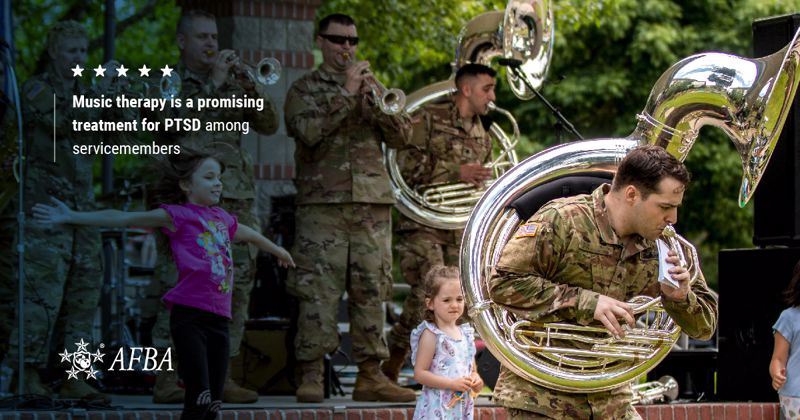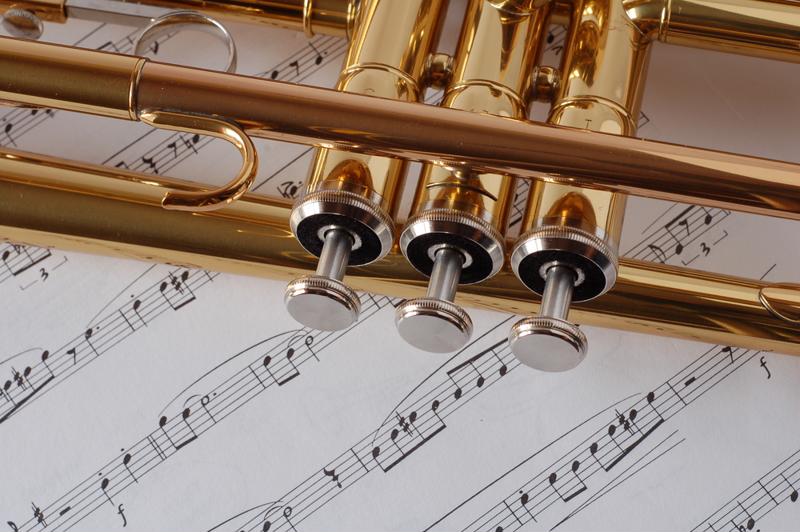While anyone can experience Post Traumatic Stress Disorder (PTSD) at some point during their lifetimes, it’s highly prevalent among veterans, first responders and active duty service members. Estimates of the rates of PTSD vary by era, but veterans who served during Operations Iraqi Freedom and Enduring Freedom have illness rates of about 11-20%, according to the U.S. Department of Veterans Affairs.
It’s not just combat that causes PTSD among veterans: 23% of women who use VA health care report having been sexually assaulted during their service, further increasing rates of PTSD among veterans.
One type of therapy, in particular, stands out as a unique and effective form of treatment for PTSD: music therapy.
What is PTSD, and why does it matter?
PTSD, once known as shell shock to describe similar symptoms among combat veterans, can be an extremely debilitating condition that can occur after a traumatic event. The disorder is a complicated psychiatric illness. Some symptoms of PTSD include, according to the Anxiety and Depression Association of America (ADAA):
- Intrusive thoughts or dreams about the traumatic experience that happen involuntarily and cause distress. This can include episodes of feeling like the traumatic incident is recurring and acting out the event (sometimes called “flashbacks”).
- Intense psychological distress and usually avoidance of triggers that remind one of the episode.
- An inability to remember details about the incident.
- Increased arousal and reactivity.
- Feelings of detachment or estrangement from other people.
- Persistent fear, horror, anger, guilt, or shame.
Left untreated, these symptoms can worsen over time. That’s why it’s vital for sufferers of PTSD to receive intervention from a qualified professional.
 The appearance of the U.S. Department of Defense (DoD) visual information does not imply or constitute DoD endorsement.
The appearance of the U.S. Department of Defense (DoD) visual information does not imply or constitute DoD endorsement.Music therapy and PTSD
One form of complementary treatment to treat PTSD and other psychiatric illnesses, is music therapy. Music therapy is the use of music interventions to accomplish goals, e.g., to treat symptoms of PTSD. It can involve songwriting, or playing or listening to music.
Using music therapy to ease PTSD symptoms goes as far back as 1945 with the military’s Technical Bulletin 187, which observed how music affected the reconditioning of service members in Army hospitals.
The U.S. War Department discovered that music positively affected soldiers’ PTSD rehabilitation programs. This effect was demonstrated during physical reconditioning, occupational therapy, education, and recreation. The military followed up on this after the study was completed, attempting to further explore the possibilities of using music during therapy for recovering soldiers.
Various organizations have developed applications as a result of these studies to include programs ranging from active duty airmen improving their stress management and coping skills with music to using songwriting to treat PTSD symptoms.
Why use music therapy when traditional cognitive behavioral treatment exists?
Music therapy can be less intimidating than cognitive behavioral therapy (CBT) because of one factor: stigma. Despite the ongoing efforts by mental health professionals to encourage those with psychiatric symptoms to seek counseling and psychiatric treatment, there is still a strong aversion toward seeking mental health services. According to a recent study by the World Health Organization, between 30-80% of people with psychiatric illnesses do not seek treatment.
Many see music therapy as less intimidating or stigmatizing than psychotherapy, and thus is more broadly accepted.
Music therapy is a promising treatment for PTSD among service members
Since its initial success during World War II to treat symptoms of PTSD and promote recovery, associations such as the American Music Therapy Association (AMTA) have helped develop its use to treat psychiatric illnesses such as PTSD.
There’s a long way to go until any PTSD treatment is perfected and universally helpful for sufferers of its symptoms, but music therapy is helping lead the way as a promising source of hope.

